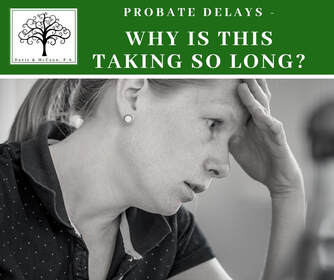 Q: My parents are in their early 70s and have done no estate planning. My mother has wanted to do planning for the last several years but my father refuses to discuss the subject. They own their home as joint tenants, and they have a couple of bank accounts, retirement accounts, and some life insurance, as well as their vehicles. Can my mother do her own estate planning, even if my father still refuses to cooperate? A: Yes, your mother can and should do her estate planning. While she may be limited with what she can do since your father is unwilling to cooperate, she can do some important basic planning. Without your father’s consent and cooperation, she may not be able to utilize the most advantageous tax saving options, but she will be able to get some very important legal safeguards in place for herself. At the very least, some basic documents that she should immediately request include a health care power of attorney, a financial power of attorney, a living will (if she wants to dictate how her end of life treatment will be handled), and, if possible, a simple will or trust. With a Health Care Power of Attorney, your mother will be able to appoint a person, or a group of individuals whom she trusts, to make immediate health care decisions on her behalf if she becomes incapable of making decisions for herself. Without this important document, in an emergency, the physician or hospital may require additional paperwork and permissions prior to treatment. This document becomes especially important if the emergency occurs outside your parents’ local area and your mother’s regular physician is not present. The time that it takes to gain additional permissions and paperwork could drastically impact your mother’s care in an emergency.  Q: “My mother, who resided in Kansas, died in June. She had a Last Will and Testament and owned several pieces of real estate. She told us children that we would receive an equal share of her estate. How long will I have to wait to receive my share and what situations might delay the distribution?” A: Because your mother chose to use a Will as her estate planning strategy, her estate will require a probate action initiated by the filing of a Petition for Probate of Will with the District Court in the county of her permanent residence. Filing must happen within six months after the date of her death. Failure to file her Will within this six month period will result in her estate being handled as if no Will existed. Anyone having knowledge and access to her Will may offer it for probate at any time within the six months following her death. Usually, the Executor or Administrator named in her Will is responsible for filing the Petition with the assistance of a probate attorney. Your Mother’s estate may need to file a federal estate tax return. Kansas currently doesn’t have an estate tax, so no state estate tax return should be necessary, unless your Mother owned property in another state. Tax payments are due no later than nine months after the date of death. For your mother’s estate, these tax returns must be filed and paid (if applicable) no later than next March, unless an extension has been properly requested. Additionally, if your mother owned property in a state other than Kansas, a separate probate action in that state may be required. After the Petition for Probate of Will has been filed, you generally can expect the Executor or Administrator to be appointed by the Court within 4 to 5 weeks from the date the petition is filed. If your mother had outstanding debts due to creditors, they have 4 months after they have been notified to file their claims against the estate. Any distributions of an estate will typically not occur until after this time period has run. Since each estate is unique, no exact time schedule can be given for the length necessary to probate an estate. Distributions to beneficiaries generally don’t happen until the estate is ready to close, but if circumstances warrant it, the Executor or Administrator may do a partial distribution prior to that time. Some factors that may delay an estate closure and distribution can include: 1. Appraisal of real property, equipment and household items. A certified appraiser is not always available in a timely fashion, especially for rural residents. Certified appraisers are often booked out months in advance, or must travel long distances, so obtaining a quick appraisal for the real estate isn’t always feasible. If family members are contentious, multiple appraisals may be required to satisfy the parties involved, which can add to the delay.  “An ounce of prevention is worth a pound of cure.” You may be familiar with this famous quote by Benjamin Franklin and think advice from the 1700s would be inapplicable for business decisions in 21st century. However, our experience tells us otherwise. Business owners who try to act as their own attorney when entering into a legally binding document, like a commercial lease agreement, assume a tremendous amount of financial risk. Many intelligent individuals find themselves in the middle of what would have otherwise been a preventable legal or financial mess if they had only sought proper legal advice. Some common items that often trip up business owners when it comes to commercial leases are the exclusion or deficient use of the following clauses: 1. Attorney Fee Clause: If your contract dispute requires litigation, attorney’s fees and court costs should be paid by the person who loses the litigation. Including this clause acts as a deterrent to the filing of frivolous claims. 2. Use of the Property: Avoid surprises by ensuring that the tenant’s intended use of the property is explicitly permitted in the lease. 3. Approval of Alterations and Signage: A commercial lease should require the landlord’s prior written approval prior to the tenant making any substantial alterations to the property. There should also be language requiring that any alterations made be in a workmanlike manner. Finally, the landlord should have to approve in writing to the tenant’s outdoor signage. This is due to the fact that many signage require making permanent alterations to the exterior of the building. |
NEWS YOU CAN USEDavis & McCann, P. A., Archives
April 2021
Categories
All
|

 RSS Feed
RSS Feed